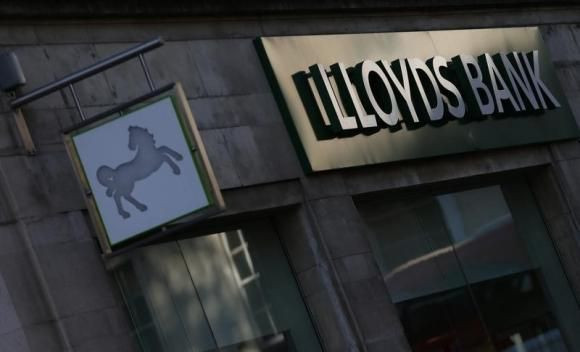Lloyds Payout In Balance After Scrapes Through UK Bank Test

(Reuters) - Britain's state-backed lenders only narrowly passed the Bank of England's debut annual stress test, putting the prospects of Lloyds paying a dividend for 2014 in the balance.
Lloyds and its British banking rival Royal Bank of Scotland on Tuesday scraped through a doomsday scenario of plummeting house prices and soaring unemployment after both took pre-emptive measures to shore up their capital.
The Co-operative Bank, which nearly collapsed last year before being bailed out by bondholders, was the only bank to fail the test, which was tougher on lenders with high exposures to British mortgages, such as RBS, Lloyds and Nationwide.
Britain pumped 66 billion pounds into Royal Bank of Scotland and Lloyds Banking Group to keep them afloat during the financial crisis of 2007 to 2009, prompting a shake-up in the way banks are supervised.
The Bank of England's Financial Policy Committee, which is tasked with dealing with potential risks to the economy from the banking system, recommended that banks be tested regularly to check they have sufficient capital to withstand market shocks.
The Bank of England stress test added a number of additional layers on top of those applied by European regulators in an EU-wide test of 123 banks in October.
Under the stress scenario, Royal Bank of Scotland's core capital ratio fell to just 4.6 percent, a whisker shy of the 4.5 percent minimum required, before actions it had taken this year to strengthen its balance sheet were taken into account.
Lloyds' core capital ratio was 5.0 percent before its actions were taken into account.
The Bank of England said on Tuesday it "would ordinarily have required RBS to submit a revised capital plan", but that it deemed this unnecessary as Royal Bank of Scotland had announced it would raise extra capital while the stress tests were underway.
Royal Bank of Scotland, which is 80 percent owned by the state, said it needed to do more.
"We recognize that there is still much work to be done to improve the resilience of our balance sheet," Chief Executive Ross McEwan said in a statement.
The Bank of England's stressed scenario featured a slump in the value of sterling and a buildup of inflationary pressures, leading to a tightening of monetary policy and a rise in interest rates to 4 percent from 0.5 percent currently.
Those factors would cause the country's economic output to fall by about 3.5 percent from the end of 2013 and the unemployment rate to almost double to 12 percent.
Britain's other large banks, HSBC, Standard Chartered, Santander UK and Barclays, scored comfortably in the test with pass rates of between 7 and 8.7 percent.
The Bank of England warned that a stress test focused on emerging market shocks -- which would affect HSBC and Standard Chartered more -- could come in future, and the BoE said that in 2015 it would also assess banks' leverage ratio as well as capital levels in future.
© Copyright IBTimes 2024. All rights reserved.




















